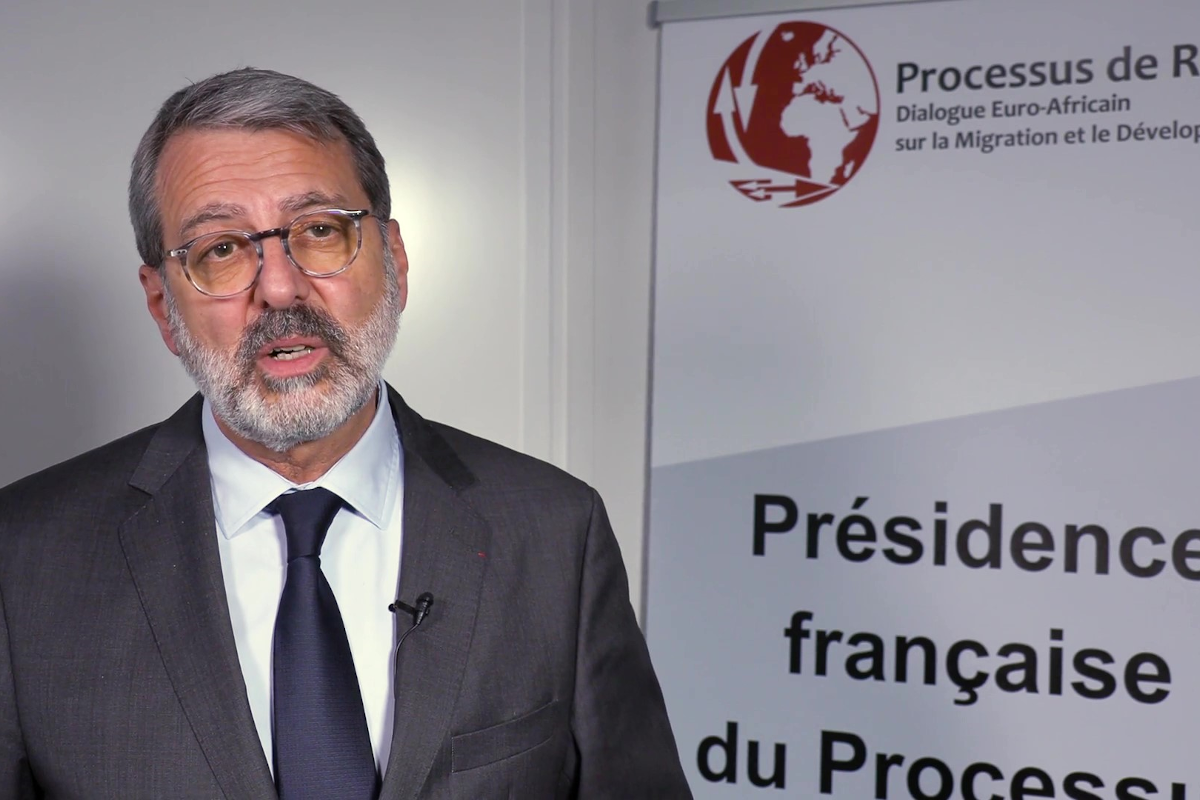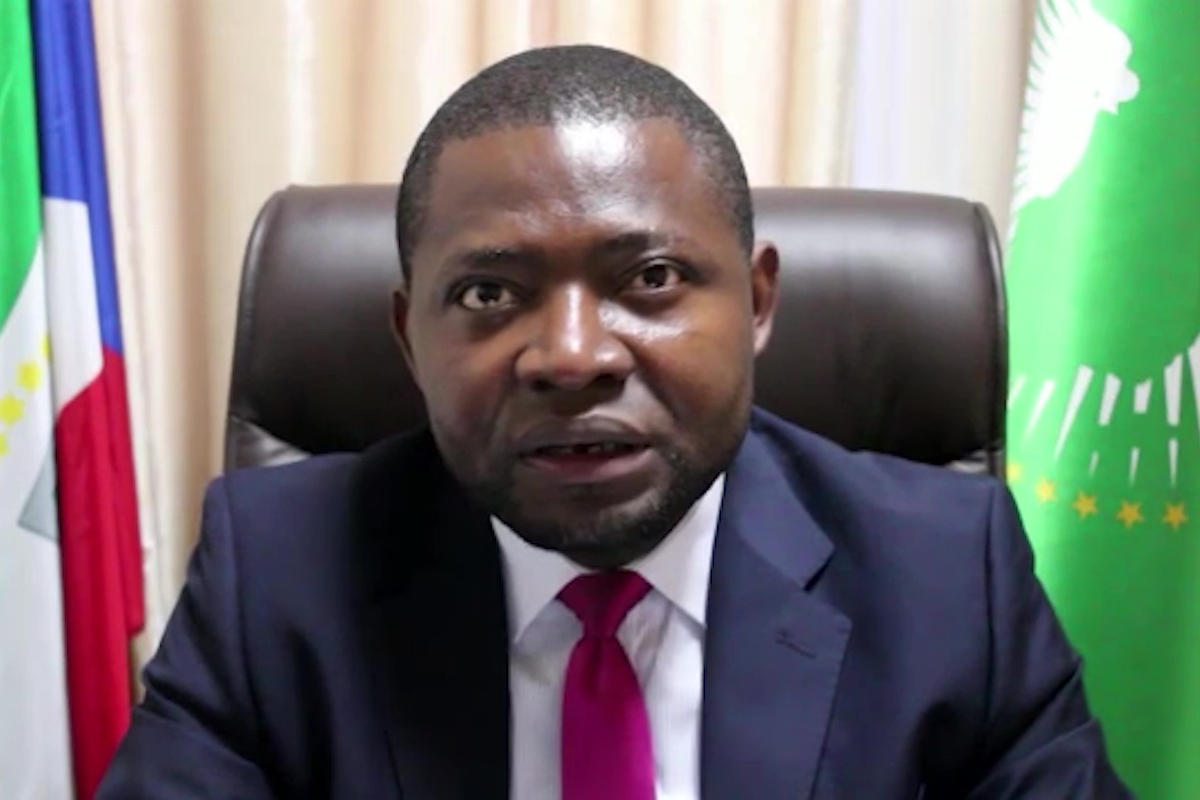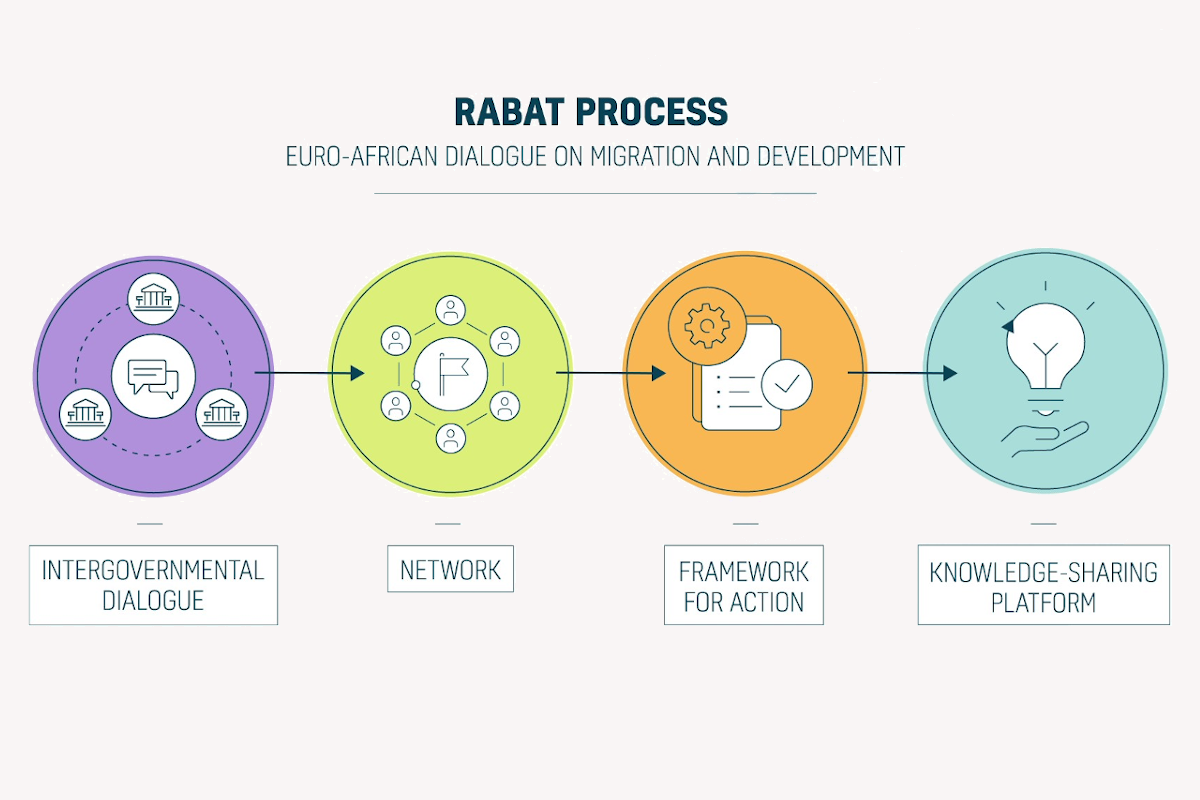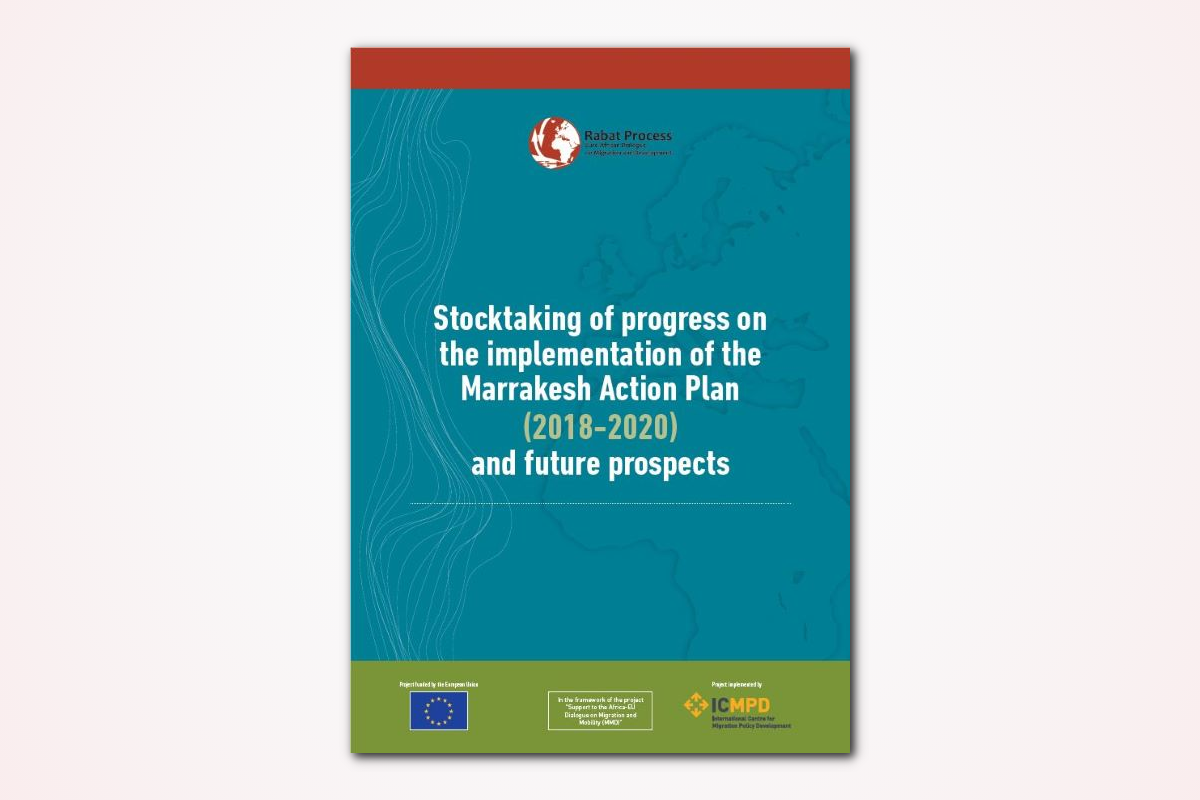France, Chair of the Rabat Process since 3rd June 2019, has handed over the Chairmanship to Equatorial Guinea today, on 7th December 2020. In a recent video interview, Ambassador Jean-Marie Bruno, Head of the International and European Affairs Department at the French Ministry of Interior, reflects on the achievements and challenges of the past months.
France’s period as Chair has been seriously impacted by the Covid-19 pandemic which led to the postponement of several major events. Nevertheless, the Dialogue was able to react and adapt quickly to these challenging circumstances. Under French Chairmanship, new, digital solutions have been explored and successfully implemented by the Rabat Process (including an online Steering Committee of the Rabat Process).
Video interview: A look back at the French Chairmanship
Priorities of the French Chairmanship
France chose three thematic priorities for its Chairmanship:
- To strengthen the capacities of countries of origin in the fight against migrant smuggling and trafficking in human beings;
- To promote diaspora engagement for the development of countries of origin, in particular through remittances;
- To explore questions related to return and reintegration.
Events and milestones of the French Chairmanship
Several face-to-face meetings took place in 2019:
- A technical meeting on border management in Madrid in July 2019 focused on good practices for bilateral and regional cooperation in the fields of combating irregular immigration and, more broadly, border management. The meeting gathered a particularly large number of participants, illustrating the common interest in this topic.
- A regional workshop on combating migrant smuggling took place in October 2019 in Abidjan, which allowed to share experiences and formulate recommendations based on good practices implemented by the signatory States of the Niamey Declaration. A side event, in collaboration with the Mixed Migration Centre (MMC), focused on building scenarios of mixed migration in West Africa.
- A technical workshop on diaspora remittances was organized in November 2019 in Abuja. The workshop set up five working groups, each issuing recommendations on how to mobilise remittances for productive investments in countries of origin.
Moreover, a number of studies and publications were published during France’s Chairmanship:
- Study: “Social immobility versus social mobility - The root causes of international emigration”
- Report: "Stocktaking of progress on the implementation of the Marrakesh Action Plan (2018-2020) and future prospects"
- Publication: “Collection of diaspora engagement practices"
- Policy brief: "Mixed migration in urban settings. Exploring risks, opportunities and the impact of COVID-19 on refugees and migrants in Greater Tunis and Bamako"
- Video: “The Rabat Process in a nutshell”
Covid-19: Virtual Dialogue activities
While the first two priorities have been addressed as planned, several events scheduled for 2020 had to be postponed due to the Covid-19 health crisis. This concerned the technical workshop on voluntary return and reintegration, foreseen for February 2020 in Yaoundé, the Rabat Process-labelled technical workshop on the link between migration and development foreseen for April 2020 in Paris, the Steering Committee and Senior Officials’ Meeting that were also to take place in Paris, the thematic meeting on cities, local authorities and migration and the first technical workshop on migration scenario building, in partnership with the MMC.
In response to these changed circumstances, a new programme was developed under France’s guidance which built on virtual meetings, policy briefs and audio-visual tools.
A virtual meeting of reference countries, together with Steering Committee Members and a virtual Steering Committee meeting took place in October 2020. In addition, a forthcoming assessment report on anti-trafficking gaps and needs was presented to Dialogue partners in a webinar in September 2020.
A joint Steering Committee with the Khartoum Process is planned for December 2020 to approve the new version of the JVAP text. It will also be held in a virtual format.
The planned meeting on return and reintegration will take place as a virtual panel discussion in January 2021, supported by audio-visual tools, and remains also planned as a face-to-face meeting once the sanitary conditions allow to do so. In addition, a final sequence bringing together the Senior Officials’ Meeting and the workshop on international migration and development is foreseen for Paris in April 2021. The above-mentioned publications also contributed to build and share knowledge within the Dialogue and beyond. In addition, a policy brief on the impact of Covid-19 on migration and mobility in the Rabat Process region is forthcoming.
Lessons learnt from Dialogue at a distance
The COVID-19 crisis encouraged the Chair and Secretariat to explore virtual tools to maintain the Dialogue remotely. This has proven particularly successful for meetings at strategic level, such as those of the Steering Committee and reference countries. A takeaway of this unusual period is the confirmation that the Rabat Process is able to meet in a flexible, easy and quick way at strategic level.
In future, virtual tools and meetings may become part of the regular programme, as France recommends to further consider their use (see Stocktaking report). Virtual solutions have the potential to reduce participation costs, increase accessibility of dialogue meetings and introduce new online activities such as e-learning and videos.
From December 2020 to July 2021, Equatorial Guinea is Chair of the Rabat Process. Learn more about Equatorial Guinea’s priorities and consult the calendar to see the up-to-date programme of activities:






